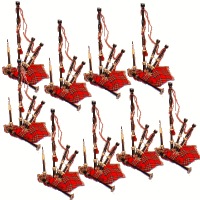Experimental music impresario Matt Davignon is known all over the San Francisco Bay Area for organizing unusual music performances. In addition to being responsible for such events as the San Francisco Found Objects Festival, he’s a member of the Outsound Presents Board of Directors and the San Francisco Electronic Music Festival Steering Committee. This Thursday evening, November 19, at 8:00 PM, Matt will present one of his DroneShift concerts at the Luggage Store Gallery, where he curates regularly. The gallery is located at 1007 Market Street near 6th Street in San Francisco, near Powell Street and Civic Center BART. Admission is $6.00 – $10.00 sliding scale, with no one turned away for lack of funds.
I lured Matt into conversation with the assurance that there would be no artichoke hearts involved.
S21: So how did your geographical wanderings bring you to San Francisco?
MD: I was raised in Western Massachusetts, and moved to Santa Rosa, California with my family as a teenager. I moved down to San Francisco as a college student because I wanted to encounter the experimental music scene.
MD: I started as a teenage bass player, who aspired (but lacked the motor skills) to be in a prog rock band. After moving to California in the early 90s, I was increasingly influenced by industrial music and ambient music (both of the 1990s variety and the Brian Eno variety).
By 1994 I was improvising, but using many different sound sources such as turntables, tape collage, household objects and drum machine. In the early 2000s I most frequently performed with just a turntable and CD player, improvising music by layering irregular loops of pre-recorded music. In 2004, I decided I wanted to put all the things I learned from my previous musical wanderings into one instrument. I was surprised to find that drum machine was the best choice. It not only comes with a wide variety of sounds, but it also has the potential to be used melodically. Most importantly, since the drum machine can be played with one hand, the other hand is free to operate devices that process the sound.
(more…)

 This coming Saturday is the official opening concert of the L.A. Phil’s exciting new festival, West Coast, Left Coast, but performances introducing the concept have now begun. REDCAT showed a “re-interpretation” of a noted performance piece with music by
This coming Saturday is the official opening concert of the L.A. Phil’s exciting new festival, West Coast, Left Coast, but performances introducing the concept have now begun. REDCAT showed a “re-interpretation” of a noted performance piece with music by  Wolfgang Grajonca that is, who is better-known to us old hippies as Bill Graham, the late impressario of the Fillmores East and West and the man who brought the music to a thousand purple-hazed nights of our misspent youths. Graham taped and saved everything and you can stream hundreds of full concerts free (downloading costs a little money) at a site called
Wolfgang Grajonca that is, who is better-known to us old hippies as Bill Graham, the late impressario of the Fillmores East and West and the man who brought the music to a thousand purple-hazed nights of our misspent youths. Graham taped and saved everything and you can stream hundreds of full concerts free (downloading costs a little money) at a site called  Just a few weeks ago over at our CD Review section,
Just a few weeks ago over at our CD Review section,  Julia herself will be tagging along to each performance; if you happen to spot this face in the crowd you might go and say hi & thanks to the woman who penned all this glorious madness. It’s all free and open to whoever makes it, so pack a lunch, put on those walking shows and have a great hike!
Julia herself will be tagging along to each performance; if you happen to spot this face in the crowd you might go and say hi & thanks to the woman who penned all this glorious madness. It’s all free and open to whoever makes it, so pack a lunch, put on those walking shows and have a great hike!

 I’ve just been informed via press release, that our s21 blogging regular
I’ve just been informed via press release, that our s21 blogging regular  Like to own a piece of potential history? Or maybe just somebody to lug your bags around? Grab some fare or flair, from fluff to full, all to be had at the
Like to own a piece of potential history? Or maybe just somebody to lug your bags around? Grab some fare or flair, from fluff to full, all to be had at the 